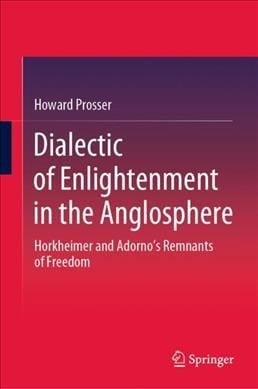
What distinguished Voltaire from other Europeans was not his assumptions about the superiority of their stock but his eloquent opposition to slavery and colonialism. The expressions of prejudice from Kant and Hume are worth noting not because they’re peculiar to the so-called Enlightenment project but precisely because they aren’t: so commonplace were such views that even these rarefied intellects weren’t immune to them. Yet these objections don’t settle the matter. That’s why, he says, Western societies that rely on liberal Enlightenment values “are plagued with anomie and nihilism.” And its toll continues: liberal rationalism is, in Gray’s view, an impoverished creed that has asphyxiated richer forms of life. A heedless sense of universalism, in turn, might encourage the thought that the more advanced civilizations were merely lifting up those more backward when they conquered and colonized them.įor critics like John Gray, the Enlightenment’s self-satisfied rationalism and belief in progress were bound to fuel notions of racial and civilizational hierarchy, and can be linked to twentieth-century totalitarianism. So did the rise of materialism: it became harder to argue that our varying physical carapaces housed equivalent souls implanted by God. The era’s systematic forays into physical anthropology and human classification laid the foundation for the noxious race science that emerged in the nineteenth century. The more general critiques take up larger intellectual currents in the eighteenth century. Kant remarked, of something a Negro carpenter opined, that “the fact that he was black from head to toe was proof that what he said was stupid.” And David Hume wrote, in a notorious footnote, that he was “apt to suspect” that nonwhites were “naturally inferior to the whites,” devoid of arts and science and “ingenious manufactures.” For some, it was a seedbed for modern racism and imperialism the light in the Enlightenment, one recent scholar has suggested, essentially meant “white.” Voltaire emphatically believed in the inherent inferiority of les Nègres, who belonged to a separate species, or at least breed, from Europeans-as different from Europeans, he said, as spaniels from greyhounds. How enlightened was the Enlightenment? Not a few critics have seen it as profoundly benighted. The challenge for his readers is to reach their own assessments about the Frankfurt School's provocative and penetrating account of the dialectic of enlightenment.Justin E.H. Klapwijk indicates how this continuity is a source of both strengths and weaknesses. "His study demonstrates a deep continuity among Adorno, Horkheimer, Marcuse, and the early Habermas, amid their differences. Particularly helpful are Klapwijk's own critical assessments of the problems of constructing social theory upon such pre-theoretical grounds and his offer of a radicalized view of Adorno's messianism as an alternative." He gives a convincing account of how key the enlightenment was for each, but also how ambivalent each author was towards its legacy. "Klapwijk presents a rich account of the various ways in which critical theorists-specifically Marcuse, Horkheimer, Adorno, and Habermas-reconstructed the legacy of the enlightenment for their respective social theories. It also offers a perspective of hope to all who share the author's concern about the direction of today's globalizing world. It invites them to a renewed criticism of the mythological traits and self-destructive tendencies of modern reason. Instead we need a wholesome reason, one inspired by a messianic faith.ĭialectic of Enlightenment is an important book for students of philosophy, theology, and the social sciences. But a fundamental question keeps coming back: how can this critique of modernity remain viable within a repressive societal system? Is reason in the modern world indeed doomed to self-destruct? Does rationality inevitably lead to domination and oppression? Jacob Klapwijk argues that the dialectic of enlightenment proves to be a faith, a mythical faith encouraging resignation and despair. Herbert Marcuse and the young Jurgen Habermas elaborated their Critical Theory, declaring that post-war society has not escaped this dilemma, blinded as it is by ideology, pseudo-democracy, and mass manipulation.Ĭritical Theory aims to unmask modern reason and liberate society. They warned that enlightened reason and societal freedom threaten to revert into blindness and oppression. Max Horkheimer and Theodor Adorno first identified the "dialectic of enlightenment" when fascism was on the rampage in Europe. Tips for Tracking Down a Hard-to-Find Bookĭialectic of Enlightenment is a thought-provoking introduction to the Frankfurt School of Critical Theory.






 0 kommentar(er)
0 kommentar(er)
